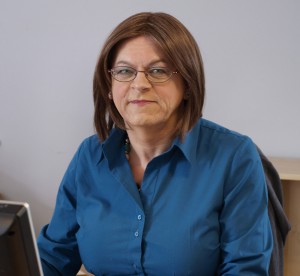 A few weeks ago, a handful of MPs stood up in the House and related their own struggles with mental illness. It’s something we don’t like to talk about. Partly it is because mental health and personality can seem inextricably related. Dementia takes the person out of the body we knew; depression makes happy people inaccessible to reassurance, comfort and love; strong people become fragile, and gentle people become angry. Obsessive compulsive disorders make other people perhaps even impossible to live with. Post-natal depression can make a loving mother hate her baby. However internal a physical ailment is, it is always external to the person. Mental illness seems to be internal to the person. It can seem to change the person. Does it? These are, if I am not being too presumptuous, common perceptions.
A few weeks ago, a handful of MPs stood up in the House and related their own struggles with mental illness. It’s something we don’t like to talk about. Partly it is because mental health and personality can seem inextricably related. Dementia takes the person out of the body we knew; depression makes happy people inaccessible to reassurance, comfort and love; strong people become fragile, and gentle people become angry. Obsessive compulsive disorders make other people perhaps even impossible to live with. Post-natal depression can make a loving mother hate her baby. However internal a physical ailment is, it is always external to the person. Mental illness seems to be internal to the person. It can seem to change the person. Does it? These are, if I am not being too presumptuous, common perceptions.
The MPs were dreadfully exposed by speaking their story, about how others responded to it – and in Parliament they knew they were being recorded verbatim in Hansard for posterity, and being broadcast. It hit the news. In full.
Today they returned to the news programme where they first featured, to record what had happened since that courageous moment. And they were happy. They felt released. Not cured, not different, just free, because they had stopped hiding something other people find really difficult to handle. In the process they had received many hundreds of supportive and grateful messages: emails and letters of gratitude that someone had spoken for them. The disclosures made the MPs seem very ordinary, family people, struggling with something that was not their fault, and which some, including their families, find very difficult to face.
It all reminded me of the nights I stood in front of the concert bands I play in, to announce to each in turn that I was really so much more a woman than I had ever been a man, that I would be presenting myself from that point on as female. People spoke of the courage of coming out, whilst I was just feeling the joy and release of not hiding any more. It is an extraordinary thing to do, to actually announce that you are different in a way that people can find distasteful or simply be unable to understand or come to terms with. Those of us who ever need to do it, know that it could be a release – or it could be a sentence. (These are just similarities, by the way, it is not that I am regarding gender dysphoria as a mental disorder in any way, for those who are celebrating the end of the GID diagnosis.) It is our risk, it is our story.
And it is intensely personal.
In being so personal, it also creates personal implications on everyone we are associated with. Everyone becomes ‘the one who is married to / son of / daughter of / friend of – the one who is different, and it therefore makes them different too. Whether it makes them the one who is ‘coping with a partner’s mental illness’, or the poor thing who is coping with a gender-transitioning partner (and who by implication must have made a terrible mistake somewhere along the line) we are like Midas who dare not touch what we value most. Should we not speak our stories because we implicate so many others around us? Should we retire and let others ask if we take sugar? Should we speak of how we think we are perceived, with the risk that we have misunderstood others’ misunderstanding of us? Or remain silent because we are stealing other people’s stories?
We speak of change. For mental illness, it may be a lifetime of OCD and the impact on others. For some with depression it is episodic. One day we are the parent or spouse or child who is the life and soul, the next suicidal, frightening. For gender transition, it is the coming out of what was always inside, into a changed presentation. Why did no-one know? They would have avoided us, might never have chosen us as friend, would almost certainly never have loved us.
For all of us who tell these extraordinarily daring personal stories, we are speaking of our selves. Not another person, not a morph into another person or personality. The heart that now bears the terrible inconveniences of OCD, of the impact of the depression, or that realises the joy of expressing a true gender, is the same. The soul, if that means anything to you, is the same.
The MP who remembered the day OCD fell down upon him and changed his life forever, the mother who fell into post-natal depression, or people like me who realise rather too late what it was that was wrong. Each of us is just one person, with one lifelong story to tell. But what we all do – you, me, every one of us – is interpret our world as it makes us, not as it is. If we speak of our understanding of how others see and respond to us, it is inevitably a tainted story, but in whatever voice (as my last blog) it is our story, not an indictment of anyone else. And we have the right to tell it with kindness – and that is all I try to do. My blog could be full of anger and blame, fury and tempest against people who cannot accept me as the same person, against the world. But it is not. I want to observe, to make sense, to understand, and to help others on similar journeys. If I fail, I fail, but at least I tried, in good faith.
And of course it is personal. Intensely personal. Because being a person is all we can do.
I want to invite all my readers to pause on this quote from Iris Murdoch, long enough for its truth to dawn:
This is the love I am looking to show. Or even to find. I want to be loved for completely who I am. Is that too personal?
